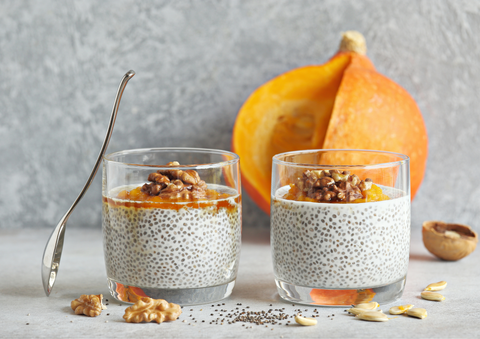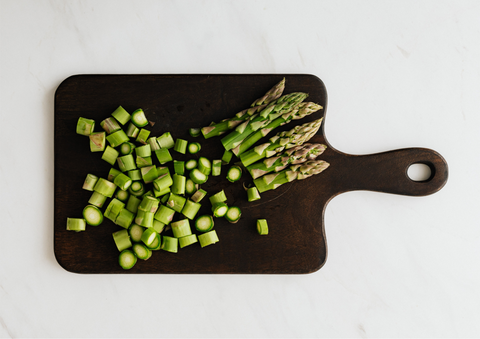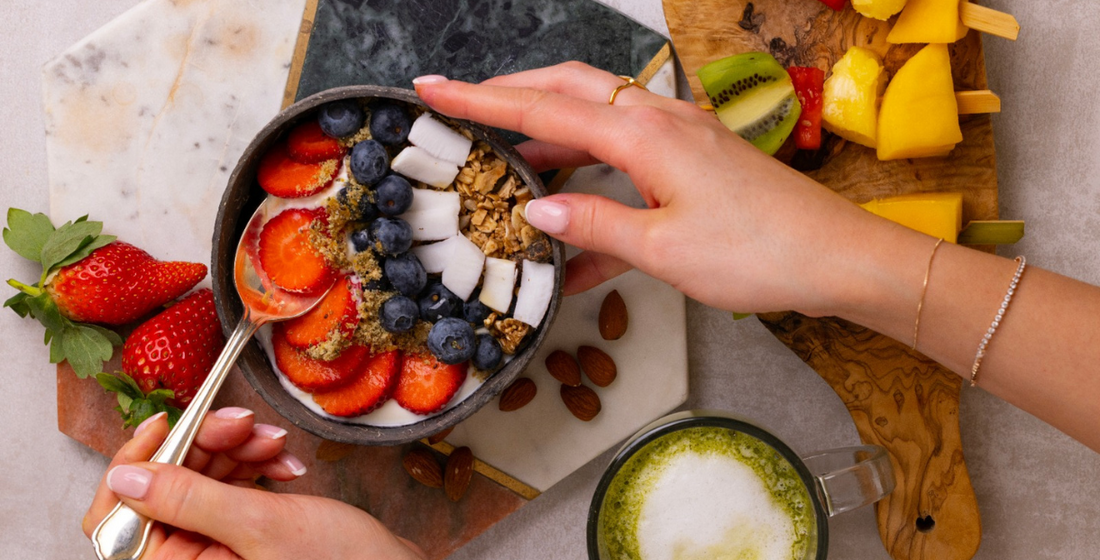Gut health is a huge talking point at the moment, particularly when it comes to the best foods to eat for a healthy, happy gut.
If you weren’t already aware, the gut microbiome plays a very important role for your overall wellbeing both inside and out. From the health of your skin all the way down to how our immune system functions, it’s so crucial that we eat foods that will keep the bacteria in our gut microbiome healthy and balanced.
But what is the gut microbiome? Our Chief Science Officer, Dr Catherine O’Neill explains in the video below:
Here are 10 of the Best Foods For Your Gut Microbiome
Yoghurt

Yoghurt is one of many fermented foods. Fermented foods are made by adding microorganisms, such as bacteria or yeast. In this case, yoghurt is made when heated milk is combined with bacteria and left to ferment.
Lactobacillus bulgaricus and streptococcus thermophilus are the two bacteria found in yoghurt (quite a mouthful, right?) and are actually referred to as probiotics, which help to increase the good bacteria in your gut. Tempeh, miso, kimchi and sauerkraut are also all fermented foods that are great for your gut health!
Lentils

According to a study conducted by the experts at Plants People Planet, lentils are found to be rich in protein and micronutrients, while also containing a range of prebiotic carbohydrates which feed the gut flora, helping to prevent digestive diseases.
Lentils also contain slow-digesting resistant starch that delays the absorption of carbohydrates with blood sugar-lowering effects, as well as being a source of prebiotics that feeds gut flora to help prevent digestive diseases.
Garlic

One thing to bear in mind with garlic is that a lot of the studies carried out on how it impacts the gut have been carried out on animals and therefore further research is needed when it comes to human health.
However, many of the findings do show specific benefits that would in theory, positively, impact the human gut microbiome.
According to one study conducted by Food Science & Human Wellness back in 2013, they found that the fructans in garlic act as prebiotics in the gut microbiome and can help promote the production of good gut bacteria (known as bifidobacteria).
Oats

In a recent study, the consumption of oats (as well as rye brans) was proven to support the growth of beneficial gut microbiota which in turn, improved cholesterol metabolism and enhanced the gut barrier function.
The gut barrier is a semipermeable structure that allows the uptake of essential nutrients, while restricting pathogenic molecules and bacteria.
This makes oats a great food to eat every day, particularly for breakfast whether that be overnight oats, porridge, muesli or in a smoothie.
Chia seeds

Chia seeds are another food which are great for the gut microbiome. Not only are they a rich source of fibre, but they also positively influence the microbial composition of healthy bacteria, like lactobacillus for example.
In one study, chia supplementation was also observed to decrease gut permeability, also known as ‘leaky gut’. Having a leaky gut can be problematic as it may be letting toxins into your bloodstream. During some studies in people with psoriasis, it's been suggested that the gut could be a little bit leaky. Certain bacteria have been shown to help strengthen the gut barrier. We tested this in the lab whilst developing AxisBiotix-Ps.
As well as popping some chia seeds onto your breakfast bowl, you can add them to a smoothie, include them in a salad dressing or sometimes find them in granola bars too.
Bananas

As well as being a great on the go snack, bananas are great for the gut. They’re fibre rich and contain inulin, which stimulates the growth of good bacteria in the gut.
Bananas also contain pectin, a soluble fibre which not only helps to lower cholesterol, but also normalises bowl function. Starch found in bananas also has a prebiotic effect, fueling that good bacteria in the gut!
Avocados

A trial published in the Journal of Nutrition looked into the health benefits that avocados bring to the gut. They found that daily avocado consumption may have a positive effect on microbial diversity in the gut.
Avocados go with all sorts of meal ideas and are great for breakfast lunch or dinner in fact!
Kimchi

Just like yoghurt, kimchi is also a fermented food and therefore an excellent probiotic. It contains the same lactobacilli bacteria found not just in yoghurt but other fermented dairy products.
Kimchi is great with udon noodles, on top of rice, in fritters or pancakes in a stew or in a pasta sauce - it’s a pretty versatile food!
Asparagus

Asparagus, which also works as a prebiotic, contains high levels of inulin, which feeds the healthy bacteria bifidobacteria and lactobacilli.
Not only that, this vegetable also has high levels of vitamin B and polyphenols. Microbes see polyphenols as an energy source which they then convert into other helpful chemicals for the lining of our gut and our immune system.
There are lots more delicious foods which have been shown to contain polyphenols, which you’ll be able to find out more about on our blog soon.
Sauerkraut

If you’ve not come across sauerkraut before (if you’ve been to Germany at Christmas time, it’s likely you will have had some of this in a hot dog), it’s essentially sour cabbage.
It's also fermented which initiates beneficial probiotics or ‘live bacteria’. Sauerkraut is also rich in vitamin C and iron, both nutrients that are known to support a stronger immune system.
Sauerkraut is a great topping for many dishes however it’s a strong flavour, so it naturally lends itself to recipes that call for pickles or olives for example.
Keep an eye on our blog for gut-friendly recipe inspiration
We’ll be keeping our blog up to date with lots of recipes which are great for the gut microbiome, so keep an eye out!


2 comments
Thank you so much, really need to sort my digestion out
That information was very helpful and reader friendly.
Thank you.